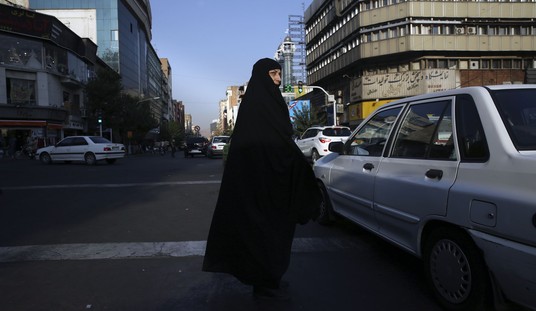Curious indeed. Didn’t John Kerry assure us that Tehran had negotiated the nuclear-technology agreement in reasonably good faith? Stratfor’s analysis of satellite imagery of the Parchin site, which was a hub of activity for Iran’s development of nuclear weapons, has had a facelift of sorts in recent months. And there appears to be a new tunnel leading to …. what, exactly? A hydroponic farm?
Satellite imagery provided by our partners at AllSource Analysis gives a clear picture of the dual nature of Iran’s approach to its nuclear program throughout its negotiations with the West. The pictures of the Parchin Military Complex, taken in July 2010 and January 2016, respectively, show how Tehran removed potentially incriminating traces of activity at the site while talks were ongoing. It also constructed an underground facility within the complex, where research and weapons development could be concealed. …
Based on the images, it is clear that Iran began making an effort to scrub the site clean in 2012, as talks with the West began to show more potential. It removed layers of soil and foliage that could have contained evidence of its previous activities well before inspectors from the International Atomic Energy Agency arrived in September 2015, and covered large areas with concrete. Tehran also insisted that Iranian personnel, rather than IAEA experts, collect the test samples required for the inspection. However, the IAEA insists that this process was subject to rigid oversight, and the organization found no incriminating evidence against Iran during its visit to Parchin, though this was likely in part due to the recent renovations and the lack of equipment left in the high explosives test building.
The Daily Beast’s Kimberly Dozier asked Stratfor analyst Sim Tack about what conclusions could be reached from the imagery. Tack wouldn’t commit to a conclusion, but the options are bad enough:
“We’re not saying they’re cheating on the nuclear deal,” Stratfor analyst Sim Tack told The Daily Beast. “The images show Iran was going through the motions to hide what it’s done before, and it is still…developing facilities that the IAEA may or may not have access to,” Tack said, referring to the International Atomic Energy Agency. …
While the destruction of that controversial building has been reported before, Tack said the publication of images of the near-simultaneous construction of the tunnel entrance to another part of the complex is new.
“The imagery showed they were working on a tunnel entrance within the Parchin complex…and it looks like it’s complete,” Tack said. A 2014 image Stratfor did not release showed construction equipment outside tunnel entrance.
“They were still going forward with that construction during the talks,” he said.
If Iran allowed the IAEA to independently inspect this site, this would matter quite a bit less. Iran refuses to do so, not even to collect soil samples around the Parchin site; the agreement allows Iran to produce those themselves. The appearance of a tunnel under these circumstances appears ominous, especially given the use of Parchin in the past. One thing is certain: future satellite surveillance won’t accomplish much.
But by the time the agency’s request to inspect the sites was approved by Iran, chances are good any evidence of cheating would have been scrubbed. And that’s if Iran even granted permission. Tehran has stated categorically that Parchin is off limits to inspectors because of its use as a military research facility.
The president’s claim that the inspections regime is “unprecedented” is ludicrous given what we know today.
It’s been ludicrous all along. As time goes by, that conclusion will become more and more difficult to deny — and it might not take all that much time, although some will refuse to acknowledge it until the inevitable nuclear test takes place.








Join the conversation as a VIP Member